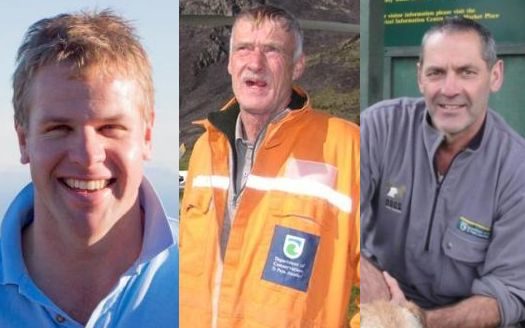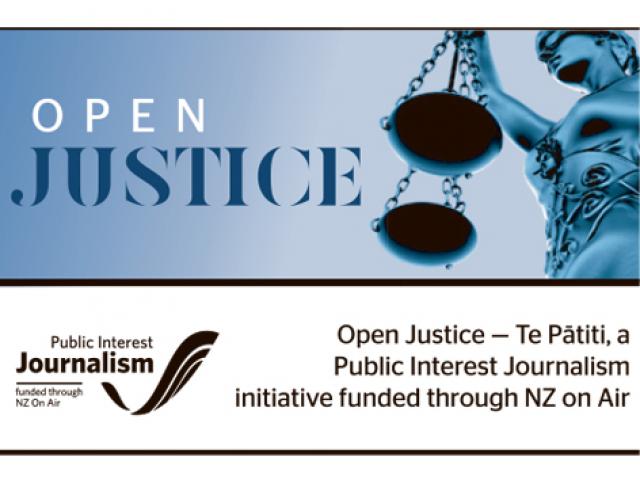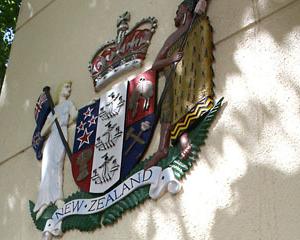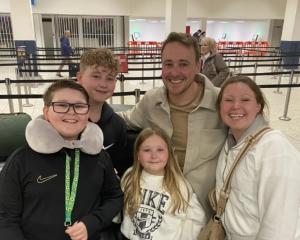
Department of Conservation (Doc) workers Scott Theobald and Paul Hondelink and pilot Nick Wallis died in the crash of the Hughes 369D soon after it took off from the airport for a tahr culling operation on October 18, 2018.
A victim impact statement by Mr Theobald’s son was read out at the sentencing of helicopter company The Alpine Group in the Queenstown District Court yesterday.
Nathan Theobald said the day his father died, he "lost one of my true mates".

"Every day when I wake up, I think about what could have been.
"This whole thing has ruined my life, my future."
Mr Theobald’s daughter, whose name was suppressed, said her children would never know their grandfather and have the "connection" they deserved to have with him.
The Alpine Group was prosecuted by the Civil Aviation Authority (CAA) on two charges of failing to comply with its duties under the Health and Safety at Work Act.
Judge Russell Walker fined the company $315,000 for its failures leading up to the crash.
He took into account its guilty plea, expressions of remorse, payments of $250,000 to each of the victims’ families, and the steps it had taken since the accident to improve its health and safety processes.
The Alpine Group was also ordered to pay $64,000 in prosecution costs.
The company, founded in 1954, is majority-owned by aviation entrepreneur Sir Tim Wallis and members of the Wallis family.
The crash occurred less than three months after Nick Wallis’ brother and fellow pilot, Matthew, was killed in a helicopter crash in Lake Wanaka.
A Transport Accident Investigation Commission (Taic) interim report two months after the crash said there were "strong" indications a pair of over-trousers had come out of the helicopter through an open door and became "entangled" with the tail rotor.
The Taic investigation is continuing and a final report has yet to be released.
CAA lawyer Stephanie Bishop said The Alpine Group failed to internally report and investigate three in-flight door opening incidents with the same helicopter — on October 3, 12 and 16.
It failed to ensure a culture of reporting such incidents, and did not follow its own processes for restraining loose items inside the aircraft, Ms Bishop said.
The Alpine Group counsel Garth Gallaway said it accepted those failures, but they were not "causative" of the crash.
In a media statement, the company said the cause of the accident would likely never be known, but it accepted some of its systems and procedures before the accident "could have been improved".
"We are a family business with a proud safety record, and we are devastated by the loss of three wonderful men."
Doc yesterday released the findings of two independent reviews it commissioned to examine its health and safety culture following the accident.
In a media statement, Doc director-general Penny Nelson said it had "vowed to do everything necessary to ensure all staff and contractors come home safe after work".
A review by PwC of the department’s health and safety systems had led to changes "to ensure risks identified in the lead-up to operational fieldwork are addressed", Ms Nelson said.
Staff were actively encouraged to escalate issues if concerned safety was being compromised.
Another review by health and safety consultancy CosmanParkes this year had described Doc’s systems as "robust".
The PwC report found "significant disconnects" between senior managers, and between senior managers and operational staff, led to the mismanagement of the risks of its already "inherently risky" tahr programme.
"Prior to the accident, certain experienced staff with institutional knowledge of tahr control have been sidelined, the trust in some senior managers, even by other senior managers, was severely eroded and certain staff found it difficult to raise concerns or provide evidence that contradicted the outcome desired by those they reported to," the report said.








